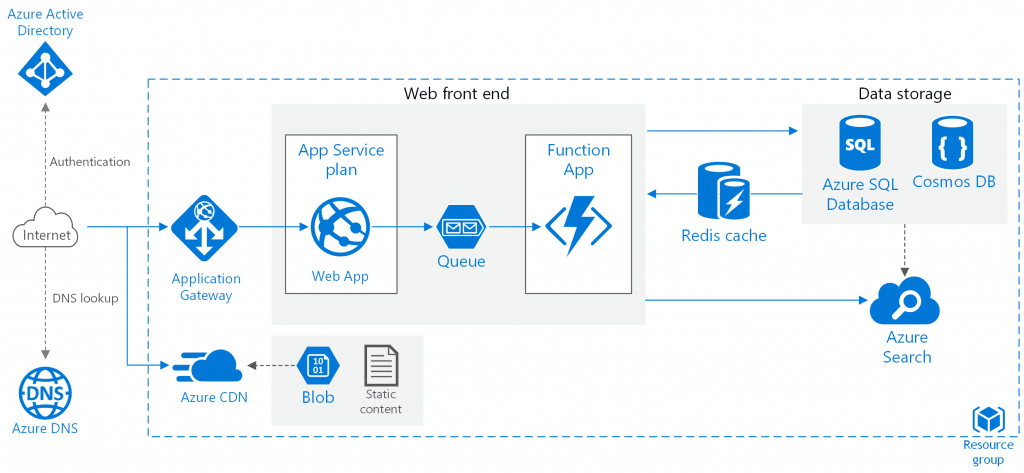
Table of Contents
A dynamic web application gains its utility by its capability to scale. A rigid application with legacy code, complex coding puts on overheads that do not turn out to be fruitful in the longer run. The type of application often determines the influx of users and expects the system to handle it. The capacity to cover and balance load is critical for a flourishing application. Without getting into the details, let’s try understanding the need to scale a web application and the potential benefits:
Scalability involves increasing the scope of an application by adding more features. It includes increasing the number of users who interact with the app. A flexible-scalable application can perform seamlessly even with thousands of users.

Components of a Web Application
(Image Source: gearheart.io)
A scalable application should have clean web app architecture. It should be able to undergo load tests. Hardware and third-party services should be selective to avert potential operational failure. Scalability can be horizontal, vertical, and diagonal:
Businesses can have their free will to scale their applications up in the cloud. They may scale up in terms of expenditures and maintenance.
Scalability is classifiable according to design principles:
Even if we divide the database into two and attach two separate servers either way for effective scalability, still, we cannot avert the possibility of a crash. It can lead to the failure of the whole system. Therefore, you should prevent a single point of failure (SPOF) and prepare for any breakdowns.
App modernization is the process of improving the current application or building an entirely new one. It involves moving the entire application to a new environment or containerize different parts of the application and organize it later via Kubernetes. Also, APIs deliver new functionalities. App modernization involves containers, microservices, automated DevOps, enhanced security, refactor apps, increased innovation, repurpose skills and modernize architecture.
A web application must be sustainable and accommodate growth. It should be designed considering the scalability to handle the increased user load. A scalable website keeps response time constant. It grips heavy workload effectively, simplifies server maintenance, and decreases operational costs.
Load balancing software, cloud storage, micro-services and caching are effective in saving costs. It assists faster data retrieval, and users do not have to go back to the source (database).
Custom web development companies make the businesses get rid of the challenges like – appropriate selection of frameworks, realistic load testing before deploying the application, selecting the hardware, and making use of right design best practices with asynchrony – database optimization – loose coupling – partitioning – caching etc.
A scalable web application takes time to develop, and it costs high. So if you are a startup and your project is small, bear in mind that it will eventually grow with time. Increasing user load should be backed up with a hassle-free experience and stable performance. Therefore, prepare the application server from the very beginning of web application development. For more information on how we do it, discuss with us!



Neeti Kotia is a technology journalist who seeks to analyze the advancements and developments in technology that affect our everyday lives. Her articles primarily focus upon the business, social, cultural, and entertainment side of the technology sector.
Or send us an email at: [email protected]